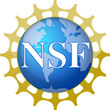Tutorial 2
Compressive sensing in medical image reconstruction: sparsity, algorithm, and application
Compressive sensing (CS) studies the minimal utility of the data for accurate image reconstruction under the proper sensing scheme. Although the assumptions of CS theories are rarely strictly satisfied in medical imaging, CS has inspired numerous sparsity-based new imaging methodologies and algorithms to enable faster and better imaging for various applications.
This tutorial starts with a brief overview of CS and its recent developments, and then introduces various sparsity transforms for static and dynamic images, followed by a few representative optimization algorithms for solving the formulated sparsity-based models, which cover several imaging applications in MRI, CT, and optical molecular imaging.
Outline:
- Compressive sensing theory (45 minutes): from L0 to L1 norm, NSP, RIP, coherence, and recent developments
- Sparsity transform (45 minutes): total variation, tight frame, dictionary learning, non-local mean, low-rank, matrix factorization, and sparsity-rank decomposition
- Algorithm (1 hour): split Bregman method, alternating direction method of multipliers, operator splitting method, prime-dual method, and interior-point method
- CT (30 minutes): low-dose CT, interior tomography, 4D CT, 4D Cone Beam CT, spectral CT
- MRI (30 minutes): sparse MRI, cine MRI, fMRI, diffusion-weighted MRI, MR spectroscopy
- Optical molecular imaging (30 minutes): diffuse optical tomography, fluorescence tomography, bioluminescence tomography, photoacoustic tomography, quantitative photoacoustic tomography
Contact information
Hao Gao, Professor
Computational Group for Imaging and Therapy
School of Biomedical Engineering, Shanghai Jiao Tong University
E-mail: hao.gao.2012@gmail.com
Website: http://imagingandtherapy.com/
About the instructor
 Hao Gao is Professor of School of Biomedical Engineering, Shanghai Jiao Tong University, China. His research focuses on computational aspects for medical imaging and radiation therapy. One major research direction is on the fast multiscale algorithms and high-performance parallel computing for radiative transfer equation and its inverse problems, such as diffuse optical tomography, fluorescence tomography, bioluminescence tomography, quantitative photoacoustic tomography, multi-modal optical imaging, and computational radiotherapy. Another major research direction is the effective compressive sensing models, sparsity transforms, and fast optimization algorithms for medical imaging, such as four-dimensional cone-beam CT, spectral CT, helical CT, cardiac cine MRI, and diffusion-weighted MRI.
Hao Gao is Professor of School of Biomedical Engineering, Shanghai Jiao Tong University, China. His research focuses on computational aspects for medical imaging and radiation therapy. One major research direction is on the fast multiscale algorithms and high-performance parallel computing for radiative transfer equation and its inverse problems, such as diffuse optical tomography, fluorescence tomography, bioluminescence tomography, quantitative photoacoustic tomography, multi-modal optical imaging, and computational radiotherapy. Another major research direction is the effective compressive sensing models, sparsity transforms, and fast optimization algorithms for medical imaging, such as four-dimensional cone-beam CT, spectral CT, helical CT, cardiac cine MRI, and diffusion-weighted MRI.
Hao Gao received his B.S. in physics from University of Science and Technology of China in 2004, M.S. in medical physics from University of California, Irvine in 2007, and Ph.D. in computational mathematics from University of California, Irvine in 2010. He was a CAM assistant professor (non-tenure-track) in Department of Mathematics of University of California, Los Angeles from 2010 to 2012, an assistant professor in Departments of Mathematics & Computer Science, Radiology & Imaging Sciences of Emory University, an assistant professor (Ph.D. program faculty) in Department of Biomedical Engineering of Georgia Tech/Emory University from 2012 to 2013. He was a recipient of 1000 Young Talents Plan award and Qiu Shi Outstanding Young Scholars Award.













